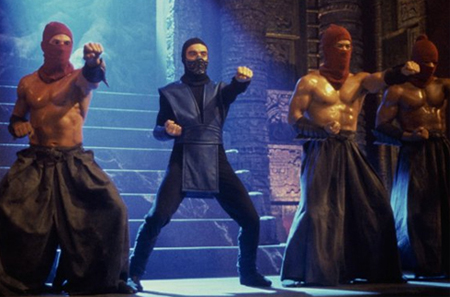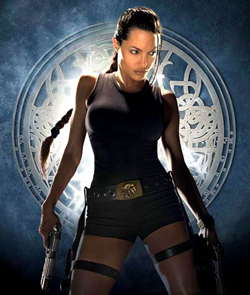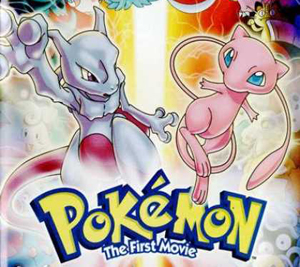This post has not been edited by the GamesBeat staff. Opinions by GamesBeat community writers do not necessarily reflect those of the staff.

David O. Russell’s involvement and subsequent departure from the Uncharted movie created a schism among fans. With a competent director and A-list talent — rumors mentioned Mark Wahlberg, Robert DeNiro, and Joe Pesci — would this be the first respectable video-game flick? Or would Russell’s loose adaptation of the source material tarnish the property? All this fanboy posturing belies a larger question: Why the hell should Hollywood care what fans think? From Hollywood’s perspective, gamers are a persnickety lot, with no clue what they really want.
Most of us pay lip service to the notion that game adaptations suck. And yet they keep making money. How can this be? Is there some secret magic at work? Or do gamers say one thing and do another?
Video-game films are products of the free market. Let’s analyze the scenario: Studio X hires a B- or C-list director to adapt a popular fighting franchise that already features a paper-thin plot. Generally, the most recognizable actor plays a supporting role since he or she can't actually perform an extended martial-arts scene. The script and production values are so low that even Ed Wood would feel ashamed. By all rights, the flick should bomb at the box office. Instead, it grosses more than $122 million worldwide.
 Hollywood has learned its lesson. Producers know they can cast the cheapest talent and buy a B-movie script, and gamers will come out in droves — much like Star Wars fanboys who bitched about the first two prequels, but stood in line 10 times to see Revenge of the Sith, anyway.
Hollywood has learned its lesson. Producers know they can cast the cheapest talent and buy a B-movie script, and gamers will come out in droves — much like Star Wars fanboys who bitched about the first two prequels, but stood in line 10 times to see Revenge of the Sith, anyway.
Thus, the cycle continues. Studios know they can turn a profit on mediocre adaptations. So why shouldn't they cut corners on talent, writing, or special effects? Gamers complain, but they show up anyway. Fans have given production companies no reason to give a damn about their opinions. And if studios want to attach respected thespians — say, Angelina Jolie, Jake Gyllenhaal, Ben Kingsley, or Alfred Molina — to their interpretation of a video-game franchise, that’s their prerogative. Gamers will come to see it anyway.
The point is that video-game movies suck, and we have no one to blame but ourselves. Critics consistently savage top-grossing video-game flicks (Lara Croft: Tomb Raider [$275 million worldwide], Prince of Persia: The Sands of Time [$335 million], Pokemon: The First Movie [$163 million], Mortal Kombat [$122 million], and Lara Croft Tomb Raider: The Cradle of Life [$156 million]). Their Rotten Tomatoes ratings of 19, 36, 14, 36, and 24, respectively, usually indicate a box-office turkey. Instead, we’ve consistently awarded mediocrity.
Adaptations are a tricky business. Stray too far, and you risk alienating the core fanbase. But if the source material is odious enough, a certain “dramatic license” is necessary. To paraphrase Portal's GLaDOS, speedy crap goes in, speedy crap comes out.
 Most are loath to acknowledge this, but generally speaking, video-game writing is terrible. It’s taken the medium 40-plus years to reach the illustrious heights of the daytime soap opera. While the tech adheres closely to Moore’s Law, the storytelling is stuck in a quagmire, creeping forward at a snail’s pace. The handful of exceptions like Portal 1 and 2, Uncharted 1 and 2, Heavy Rain, and L.A. Noire exacerbate my frustration with gaming’s stubborn refusal to grow up. Why should film studios faithfully adapt mediocre plots? If the well is poisoned, why even bother to draw from it?
Most are loath to acknowledge this, but generally speaking, video-game writing is terrible. It’s taken the medium 40-plus years to reach the illustrious heights of the daytime soap opera. While the tech adheres closely to Moore’s Law, the storytelling is stuck in a quagmire, creeping forward at a snail’s pace. The handful of exceptions like Portal 1 and 2, Uncharted 1 and 2, Heavy Rain, and L.A. Noire exacerbate my frustration with gaming’s stubborn refusal to grow up. Why should film studios faithfully adapt mediocre plots? If the well is poisoned, why even bother to draw from it?
Studio execs make the creative decisions, but ultimately, their patrons hold veto power through the dollars in their wallets. And it’s a power that they should exercise more often. If we don’t want crappy video-game films, we should stop paying to see them.
